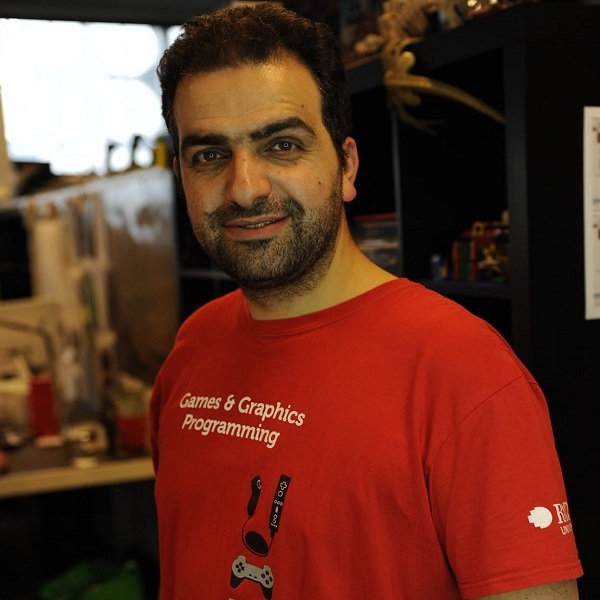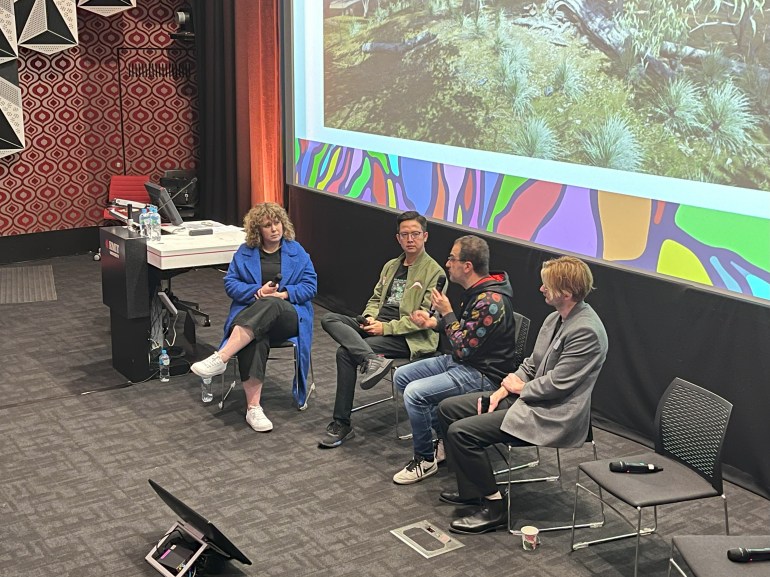At last year’s Screen Producer Australia (SPA) GENR8 conference, one of the key focuses was the use of non-fungible tokens (NFTs) and other emerging technologies such as the Metaverse in relation to storytelling and distributing IP.
The appetite for the digital tokens, which join cryptocurrency on the blockchain, has since experienced a sharp decline, with trading volumes falling 97 per cent from January to September in 2022 (Bloomberg).
Anticipation has also cooled for the Metaverse, a virtual reality space launched by Mark Zuckerberg in 2021, to the point where multiple obituaries have been published, although the company has since said the only death is of the fanfare surrounding the project.
These downward trends were not lost on the speakers at the 2023 event on Wednesday.
Held at Melbourne’s RMIT Cinema, the ideas forum included sessions on how producers are adapting to new forms of storytelling, the growth of virtual production, a case study on sustainable virtual reality, and the impact of artificial intelligence (AI) on the creative industries.
In comparing the topics of this year’s program to that of 2022, New Canvas CEO Nathan Anderson said plateauing interest in NFTs and the Metaverse posed a wider societal question about why people are “infatuated with these technology cycles in a very kind of rapid succession”.

“[When] NFTs came on the scene, there was a crazy amount of hype and people spending way too much money on stuff and then that kind of died out and the Metaverse came up in 2022,” he said.
“That’s kind of going down now and in 2023, we’re in the AI hype cycle, so it’s almost like an annual, an up and down moment that we’re seeing.”
Introduced by American research, advisory, and information technology firm Gartner, the hype cycle is a methodology that tracks the maturity lifecycle of new technologies and innovations through five phases – Technology Trigger, Peak of Inflated Expectations, Trough of Disillusionment, Slope of Enlightenment and Plateau of Productivity.
Yesterday, the company announced AI was positioned at the Peak of Inflated Expectations and was projected to reach “transformational benefit within two to five years”.
So is the discourse surrounding AI set to die down as we head into 2024?
According to Fabio Zambetta, professor and associate dean of Artificial Intelligence at RMIT University, it’s already happening.
Zambetta appeared alongside Reggie Ba-Pe III and filmmaker Tobias Willis for the discussion of how AI is transforming the Australian production industry.
Speaking on the panel, he said the initial hype regarding generative AI such as ChatGPT could soon make way for a “more sensible perspective” where the technology was providing assistance without taking over.
“Pretty much every job out there is going to be in a situation where these tools are going to be co-pilots; helping them do the grunt work, or boring part of the job, quite frankly, and then leaving you a bit more control over what your creative insights are going to be,” he said.
“Obviously, that’s my slightly more positive take on things, and that’s where I really hope we go – where the tools help us and don’t ingest our work without giving our dues as well.”
It’s a debate that’s at the centre of the ongoing labour disputes in the US involving the Writers Guild of America (WGA) and Screen Actors Guild – American Federation of Television and Radio Artists (SAG-AFTRA).
The WGA, which has been on strike for more than 100 days, has proposed allowing artificial intelligence to help write scripts so long as it does not impact writers’ credits or residuals, while SAG-AFTRA wants provisions protecting its members against the unauthorised use of their voices, likenesses, and performances.

Zambetti told IF there was no need for the strikes to add to the hype cycle regarding AI, given that it was more of a regulation issue rather than a technical issue.
“My position is that that problem can be sorted pretty quickly if the companies do the right thing if companies give authors and content creators their fair share – it’s as simple as that,” he said.
“It is what it is. If you don’t have content that allows you to generate other content, there is nothing there.”
However, he did note the role of films in contributing to the polarising perception of AI.
“It’s essentially films like the Terminator and all these other Hollywood catastrophes that have created the notion of AI potentially bringing about the end of days,” he said.
“So when you think about it, it’s kind of ironic that it’s coming back to haunt them. There is a lot of fiction, not just from movies, that has created very strong biases in the way we perceive technology.
“In the case of something like Star Trek, as much as it is a very positive bias, it is still a bias in the way we conceptualise what certain types of tech should look like. So I think we need a cool head and a little bit of work to get different parties together and converge on a more sensible position.”



